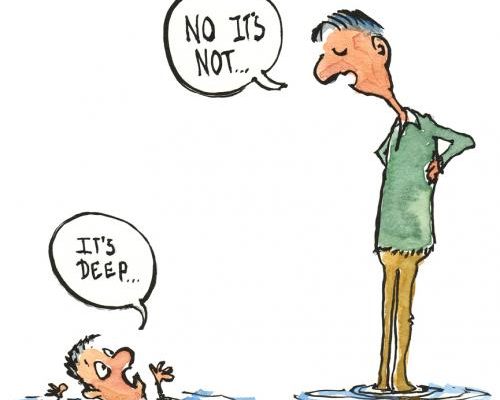I read a really great post by Seth Godin recently about empathy towards your customers, and his closing statement was really powerful to me:
‘What is required, though, is a persistent effort to understand how other people see the world, and to care about it.’
Its struck a chord because of an ongoing situation with a local telecoms company. I sub contract for a number of great companies across the country, and have been doing a lot of pre sales & tender presentation work recently. The kit and great people involved mean that we’ve won a handful of phone system and bonded VPN WAN projects, often in situations where many other firms have been vying for the work. One telecoms company in particular hasn’t been taking it very well at all…
It’s just not cricket
Rather than taking a step back, to analyse why they have lost the work and how they can present their solution better in the future, they have gone on the attack – literally calling up the clients and telling them that they have made a terrible decision, that they are wrong and that they will regret going with us.
Its funny – because I still can’t work out how I feel about it all. At first I was incredulous that anyone would have the balls to do such a thing. Then I became angry that they were attempting to bad mouth us and wondered what I could do to stop it and readdress the balance, and that’s when I stopped, took a step back and had another look at it with a fresh pair of eyes.
The models changing
Its a scary time for ‘old school’ telecoms companies. Their historic models of high cost phone systems oversold to customers who they then tie into 3, 5 and sometimes 7 year contracts are finally being questioned by the consumer. IP convergence has meant that more and more IT companies are presenting cheaper and cheaper VoIP telephony options to their customers, customers they know well and have formed long term trusted relationships with over many years.
Telephony is becoming more open, easier to install and use, more customer friendly with less vendor lock in. You don’t need to be a telephony engineer anymore to manage a phone system, in fact you need to be a data engineer and a server guy to make them work in modern, fully virtualised, enterprise datacentre environments. All of this is freaking out the ‘old school’ vendors. Its really not their fault, their own product manufacturers are telling them that phone systems are specialist solutions, requiring highly complicated dedicated proprietary hardware and of course they are saying this because they want to carry on selling their expensive kit.
The truth is, anyone who can use outlook, can download and install a phone system on a PC they have kicking about and make it work. They can buy cheap handsets and even cheaper SIP trunks and make calls and enjoy nearly all the features of the big vendors, and in fact many of the customers I see are doing just that. What they need is a trusted Telecoms and IT partner to help them make sure they are enterprise ready, that they will maintain call quality, and that their install can cope with call volumes and the inevitable system failures.
How many mainframe engineers do you know?
The job of modern comms engineers is one of, consultancy, guidance, product recommendations and training. In fact, we’re seeing a similar thing happen in telephony now as we saw in computing in the early 90’s. Big proprietary fully serviced mainframes on the way out, smaller self maintained PCs on the way in. And just like IT, the comms industry needs to be ready for the empowerment of its customer base – they need to embrace it, enable it, show willing to grow and change with the industry and the technology it runs on but most of all – they need to understand why the customer wants it.
A telecoms company who refuses to take the time to understand what a customer needs and why they are choosing competitors services, whilst repeatedly thrusting forward an outdated model for phone system delivery that doesn’t fit the customers requirements or budget, really is nothing much to worry about – no matter how much fuss they make.

